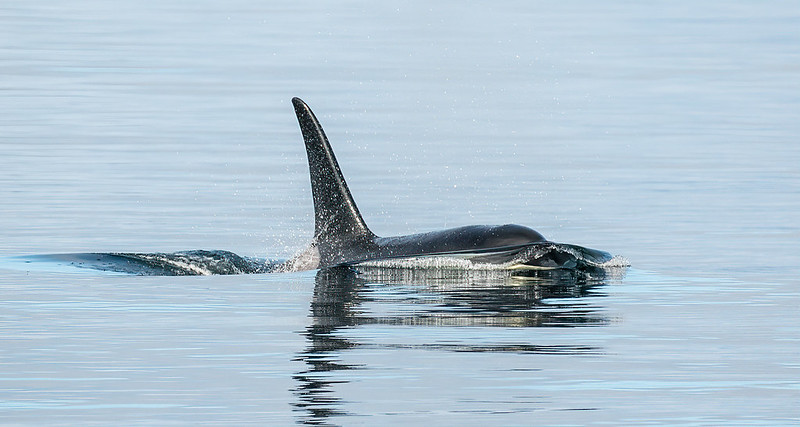
Over a year after a Washington state-based conservation group filed suit in federal court to halt commercial fishing for king salmon in Alaska, the State of Alaska has decided to intervene in the case.
In March, a judge in the US District Court of Western Washington ruled that the Alaska Department of Fish and Game had standing in a lawsuit brought by the Wild Fish Conservancy against the National Marine Fisheries Service. The suit is intended to protect an endangered population of killer whales in Puget Sound.
The news that the State of Alaska has thrown its weight behind the defense in the lawsuit comes as a relief to Amy Daugherty, executive director of the Alaska Trollers Association.
“It’s just great to have them on our team,” said Daugherty.
Trolling is one of the most lucrative fisheries in Southeast Alaska, and king salmon are trolling’s most valuable product. The suit brought by the Duvall, Washington-based Wild Fish Conservancy — if it succeeds — would be a serious blow to the salmon industry in the region which, among all species, produces $800 million in total output, and supports over 6,000 jobs, according to the Alaska Department of Fish & Game.
In a news release, ADF&G Commissioner Doug Vincent-Lang views the lawsuit almost as an affront to the department’s dedication to careful management.
He writes: “Sustainable management of our fisheries was one of the primary drivers behind statehood. I don’t take unjustified accusations and threats to state management of our resources lightly. …We have a responsibility to look out for our fisheries and the citizens of Alaska that rely on them.”
The Wild Fish Conservancy filed suit against the National Marine Fisheries Service, in March of 2020, and a month later filed a request for a preliminary injunction to halt the commercial fishery in Alaska. At the time, the estimated population of Southern Resident Killer Whales had dropped to about 70 individuals. The Wild Fish Conservancy blames some of the decline on the decrease in available king salmon, due to the interception of kings by commercial trollers in Southeast Alaska.
(Note: The decline of Southern Resident Killer Whales continues to be a subject of intense study. The CBC prepared this report last year.)
Faced with an injunction that could have blocked the 2020 season, the Alaska Trollers Association raised money and hired lawyers to intervene on behalf of the National Marine Fisheries Service. ATA director Daugherty wishes the state had come on board back then.
“It’s a lot for this small organization to involve themselves in a major lawsuit,” said Daugherty, “and had we seen them (ADF&G) rallying to involve themselves, there’s a fair chance that we maybe wouldn’t have.”
Reached for comment by KCAW, Rick Green, special assistant to the commissioner for ADF&G, said that the department was waiting to see how the federal judge ruled on the Conservancy’s request for a preliminary injunction, before deciding to intervene. US Magistrate Judge Michelle Peterson denied the injunction in June, 2020.
As the case moves forward, it’s now the Wild Fish Conservancy versus the National Marine Fisheries Service, the Alaska Trollers Association, and the State of Alaska. The lineup in court, however, will look different. The troller’s lead counsel, Thane Tienson — something of legend in Pacific Northwest Fisheries law — died of a heart attack in January of this year.
“It’s very unfortunate,” said Amy Daugherty, “Thane had a great, long-standing reputation in this area of fisheries.” The ATA has since retained Douglas Steding, with Northwest Resource Law in Seattle, as its lead counsel.































